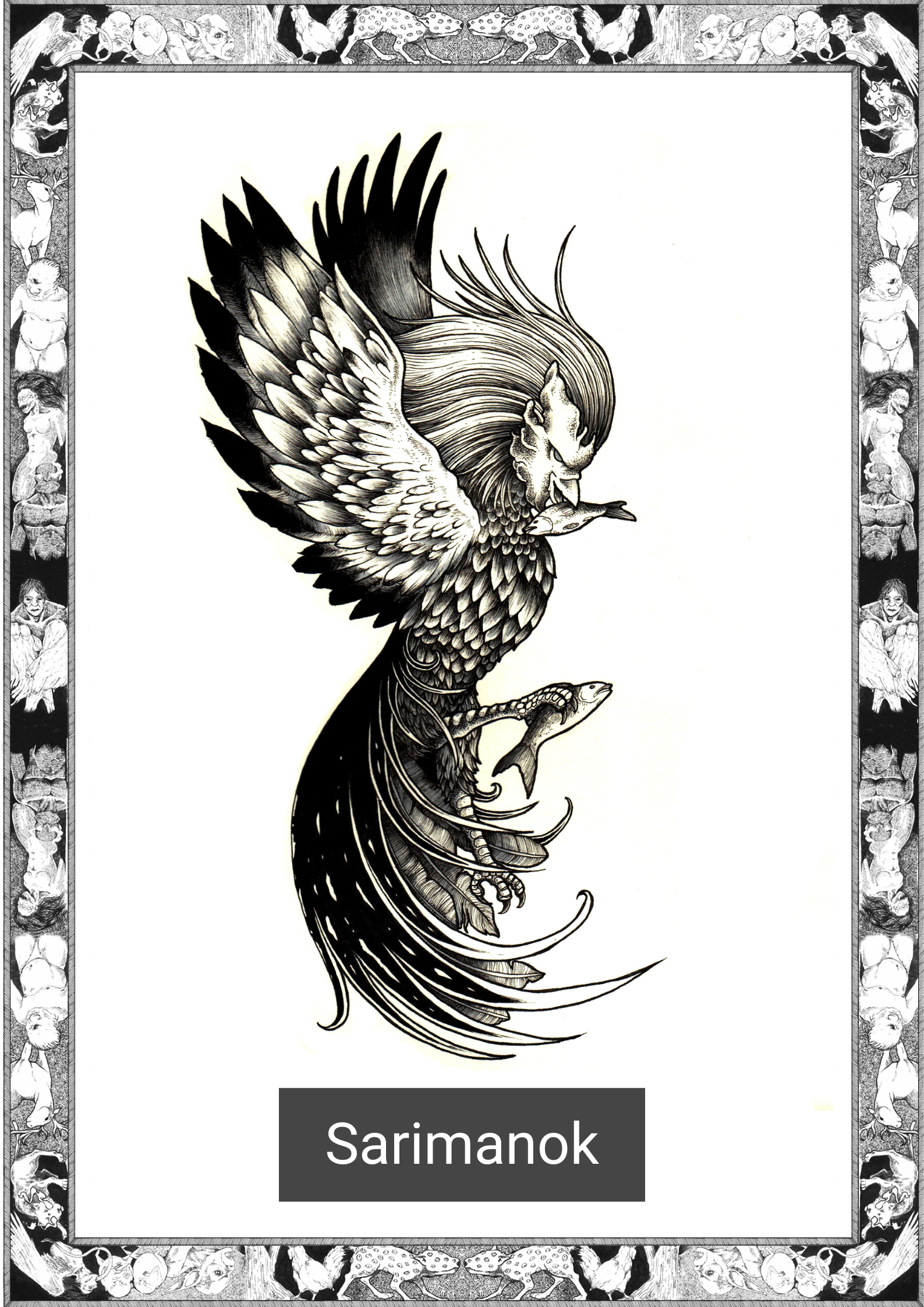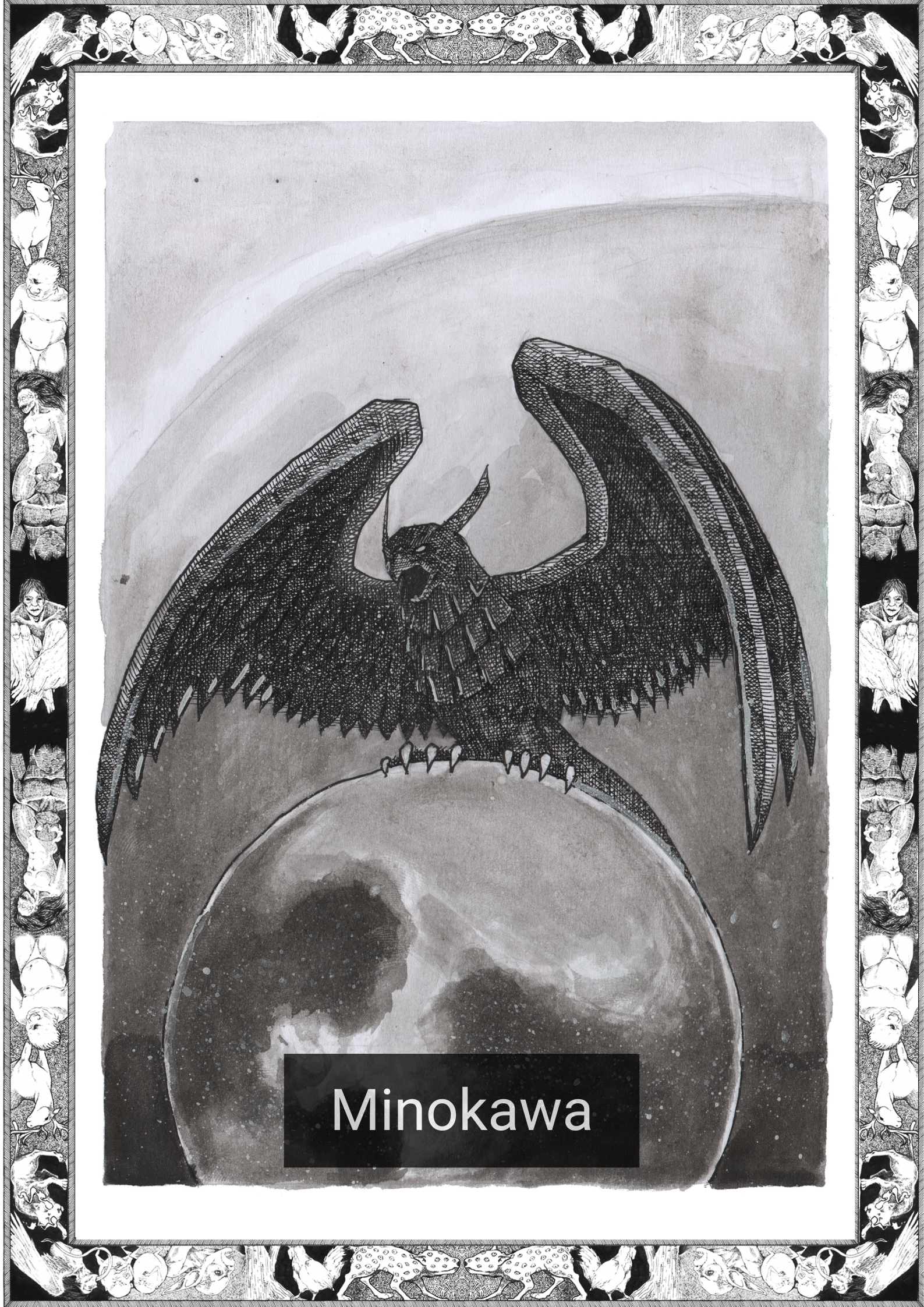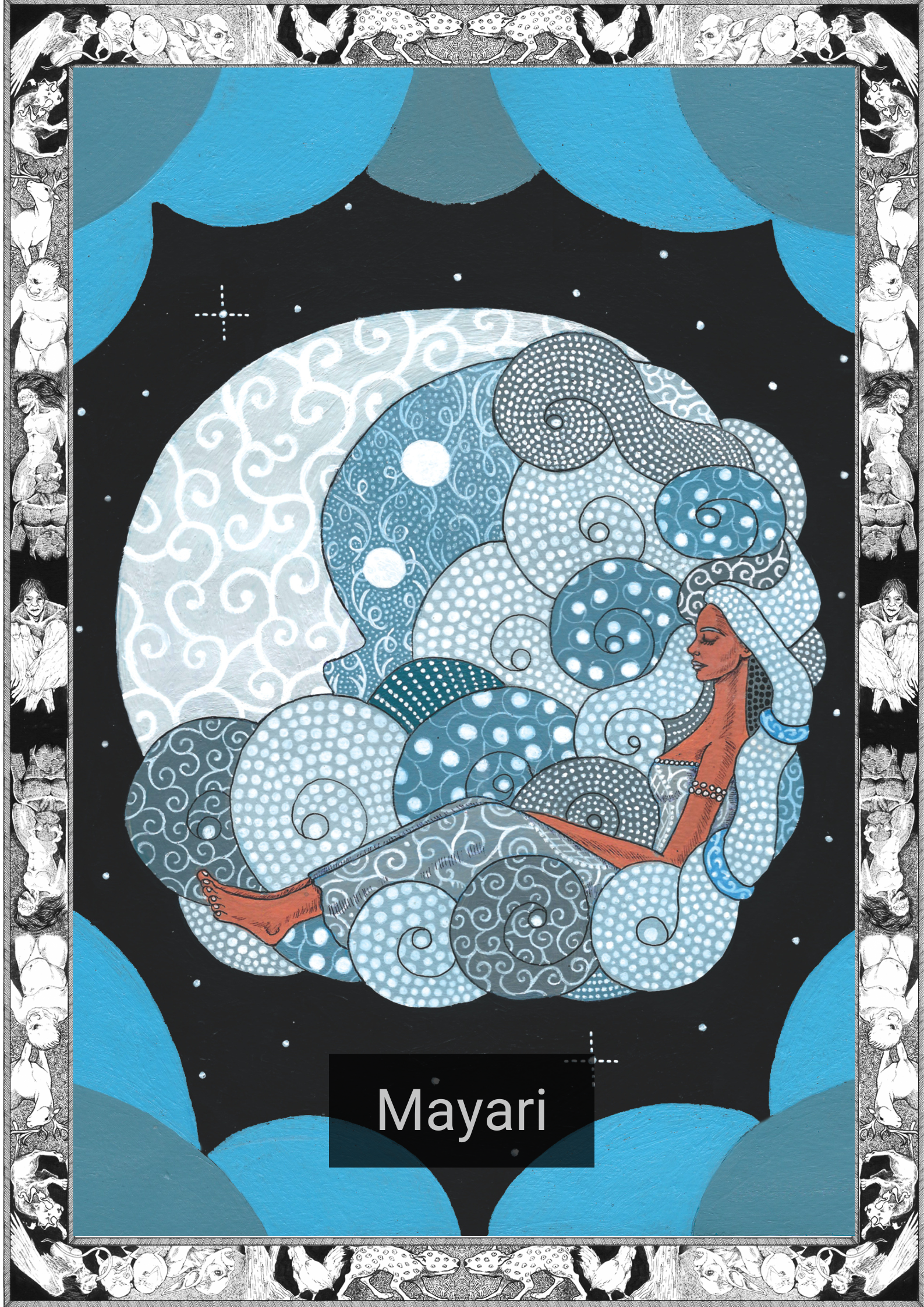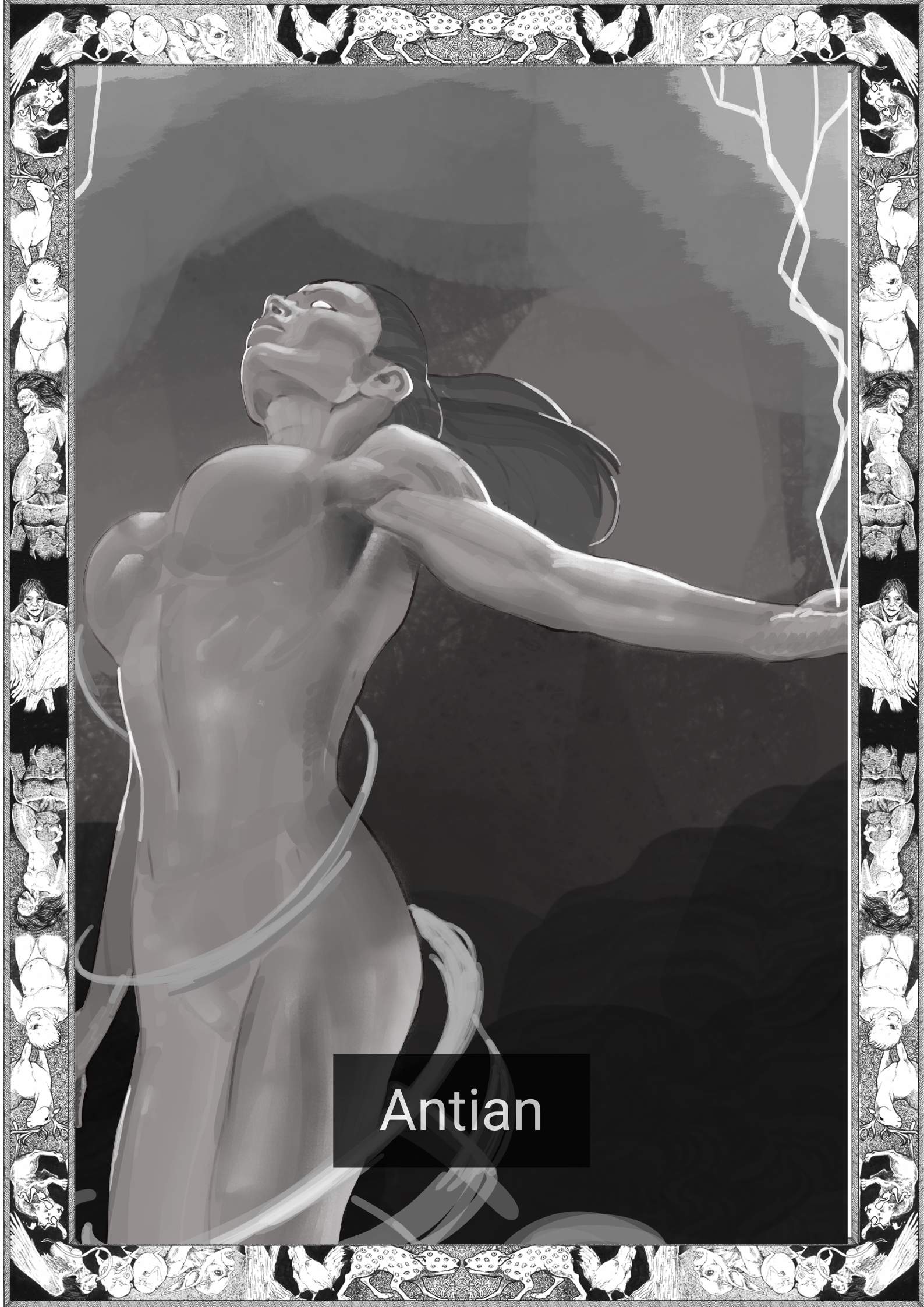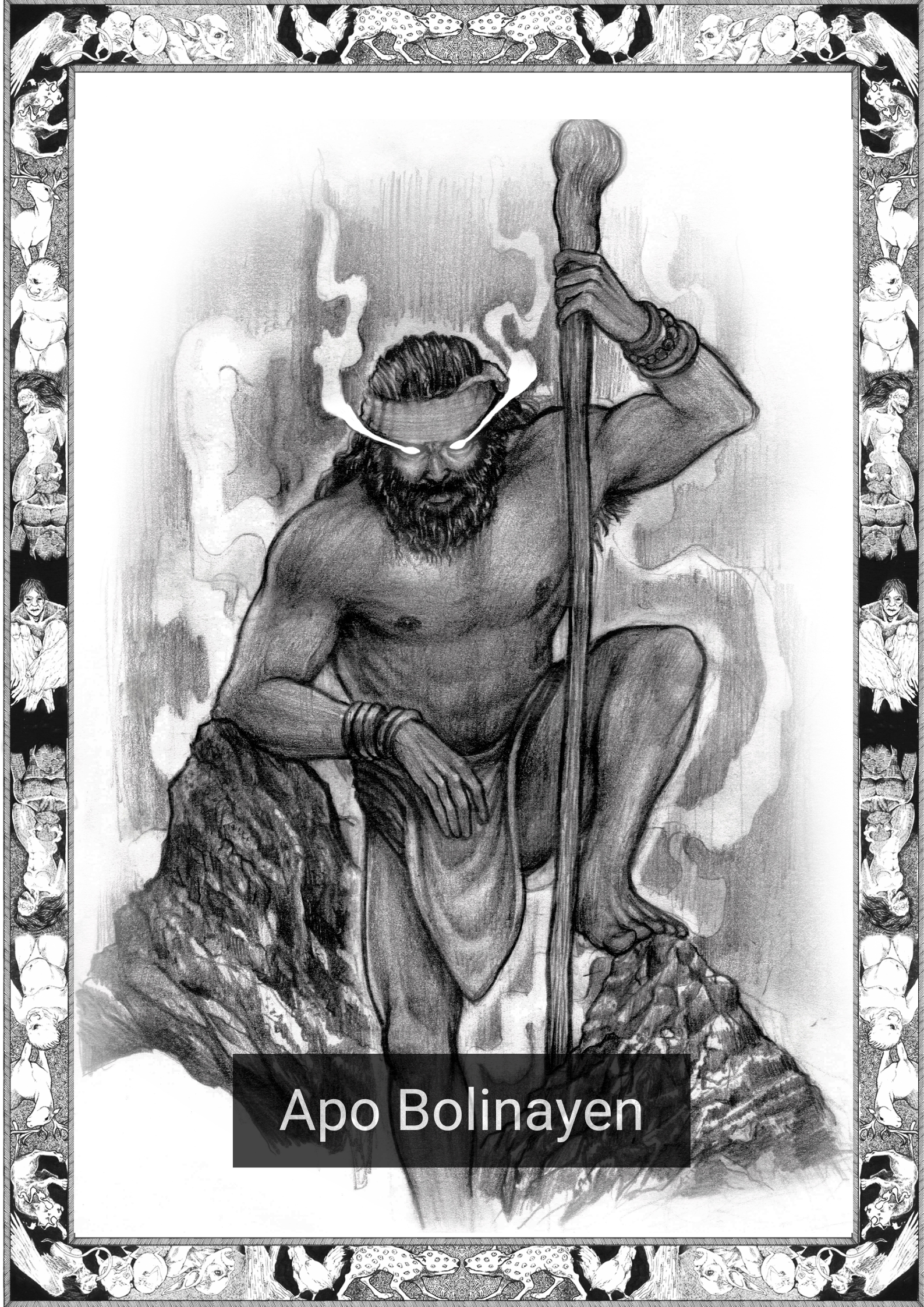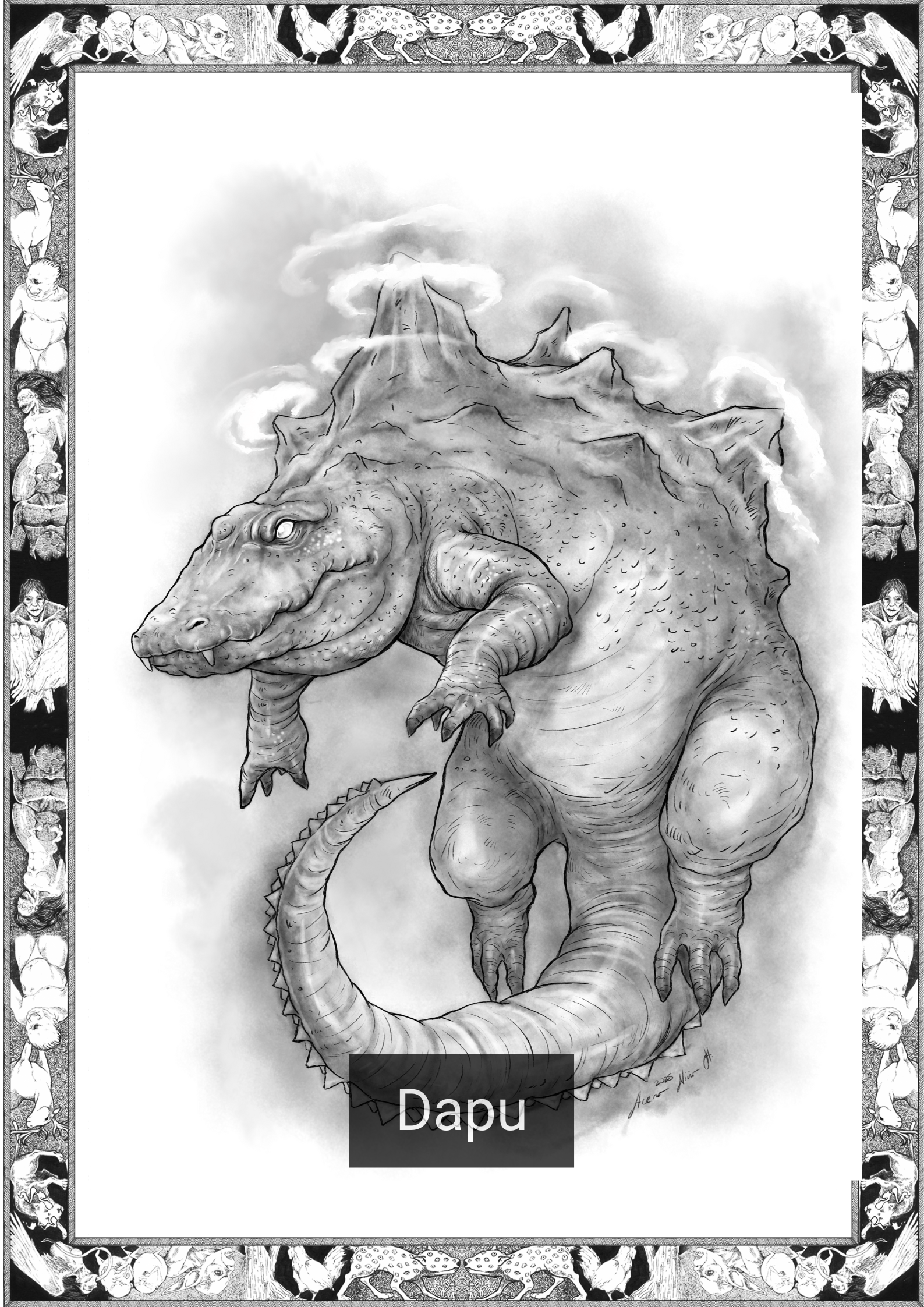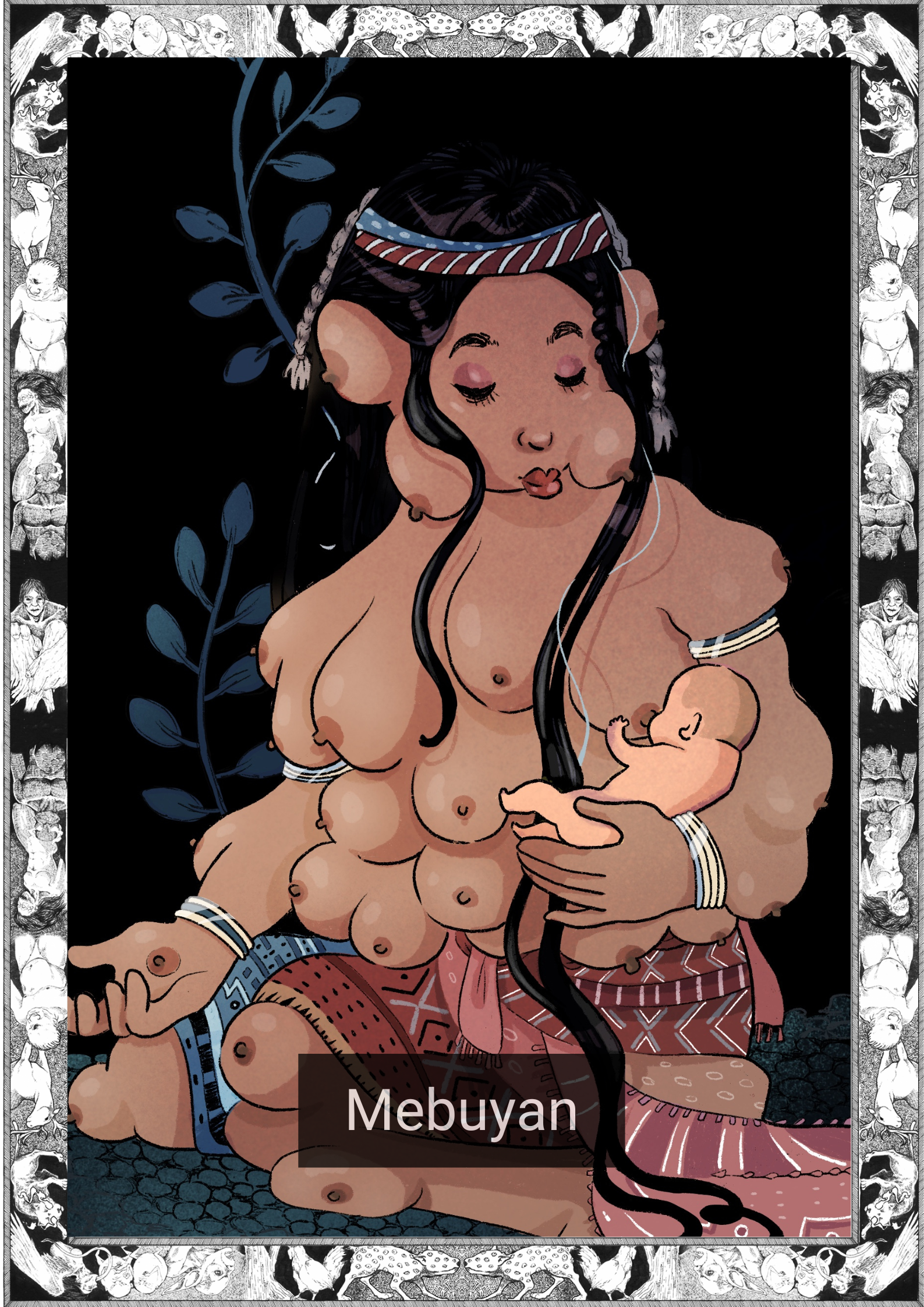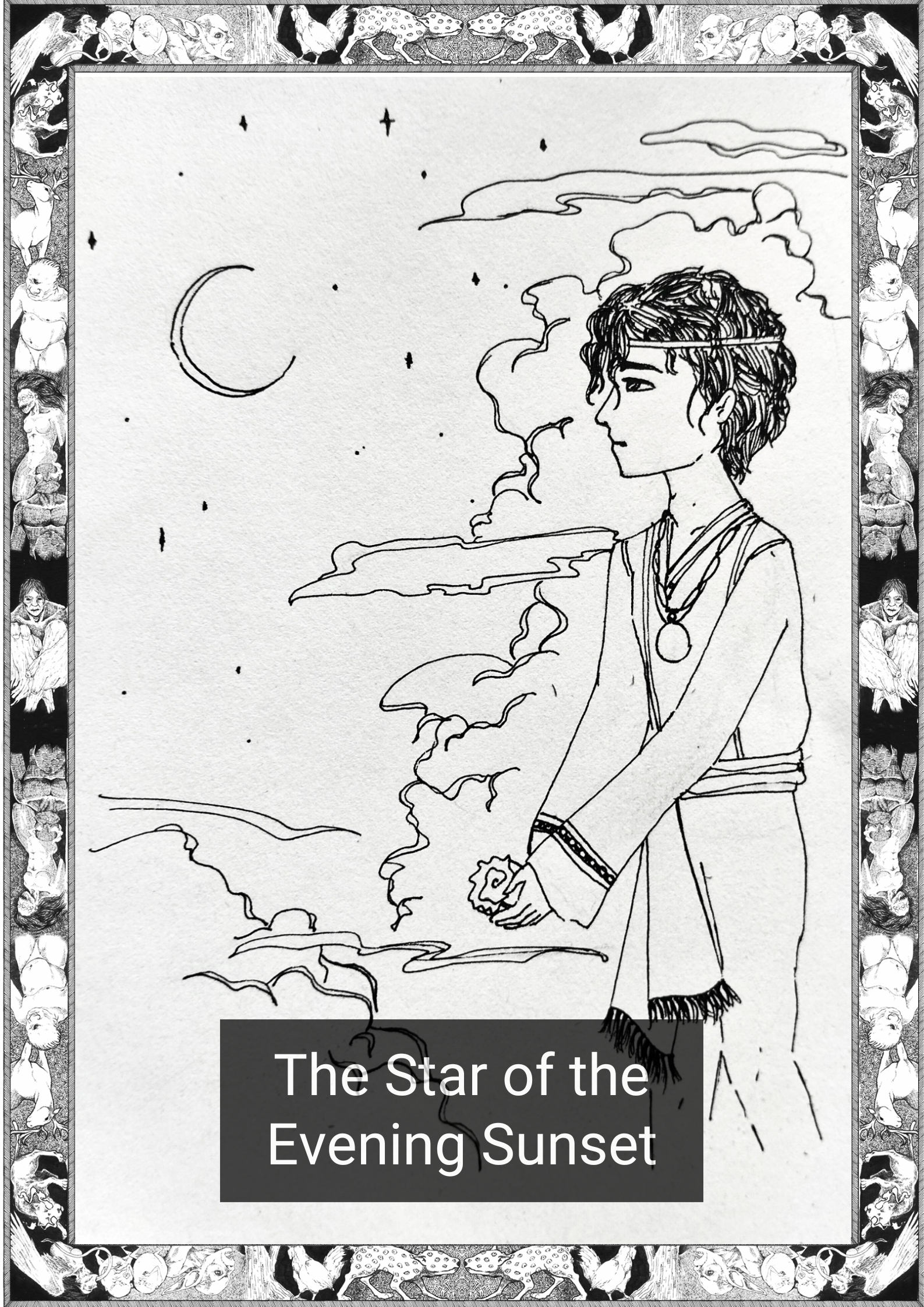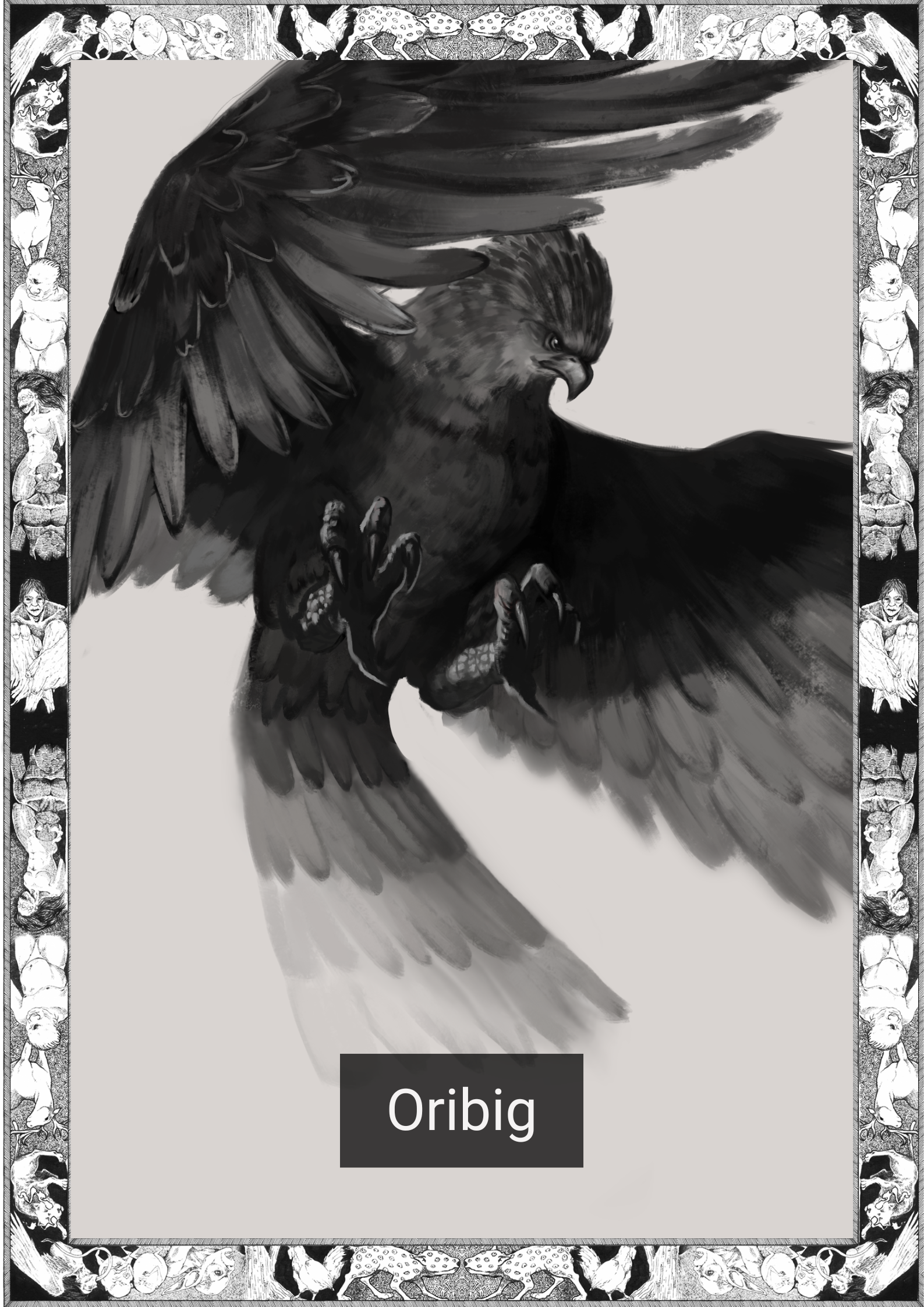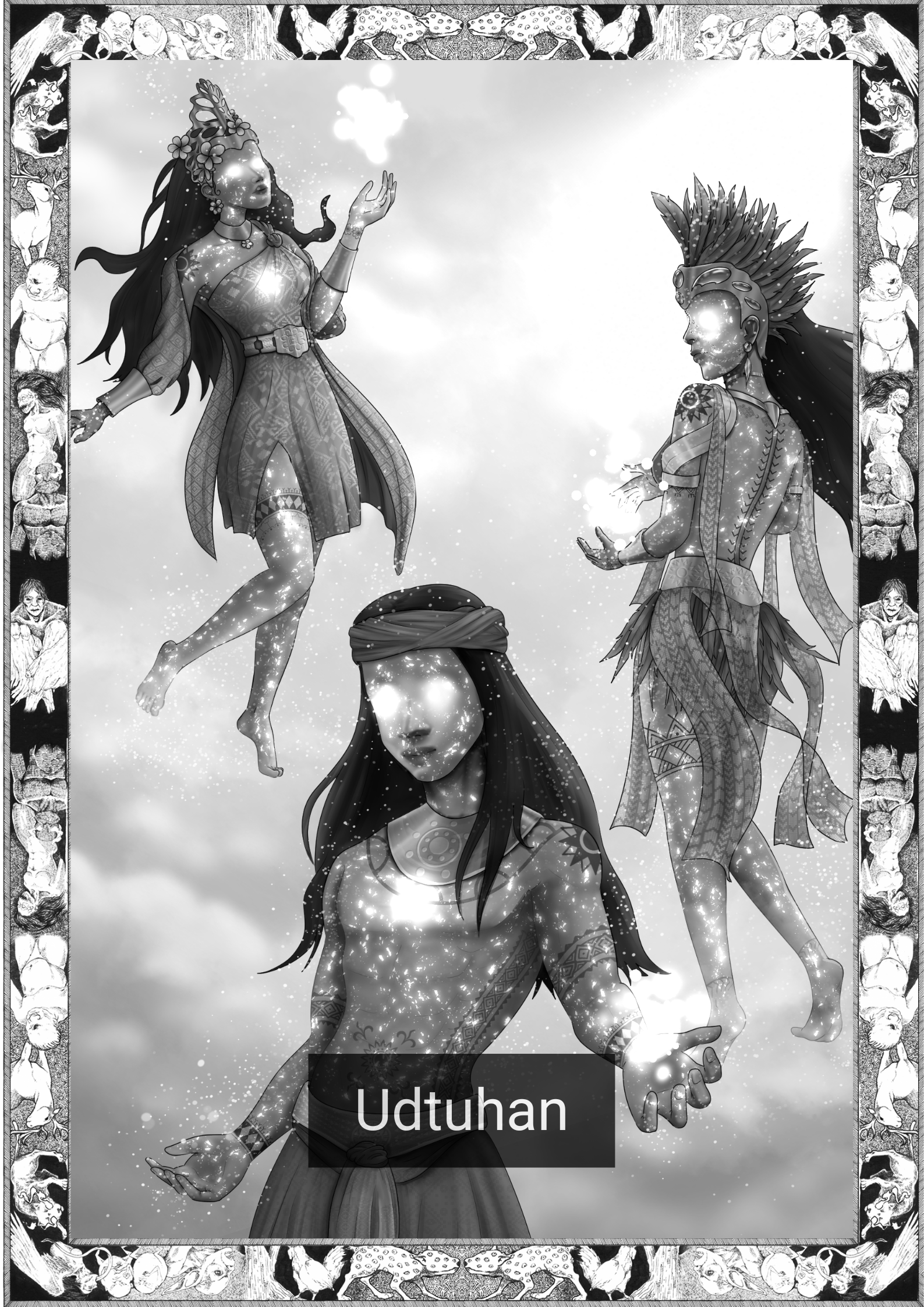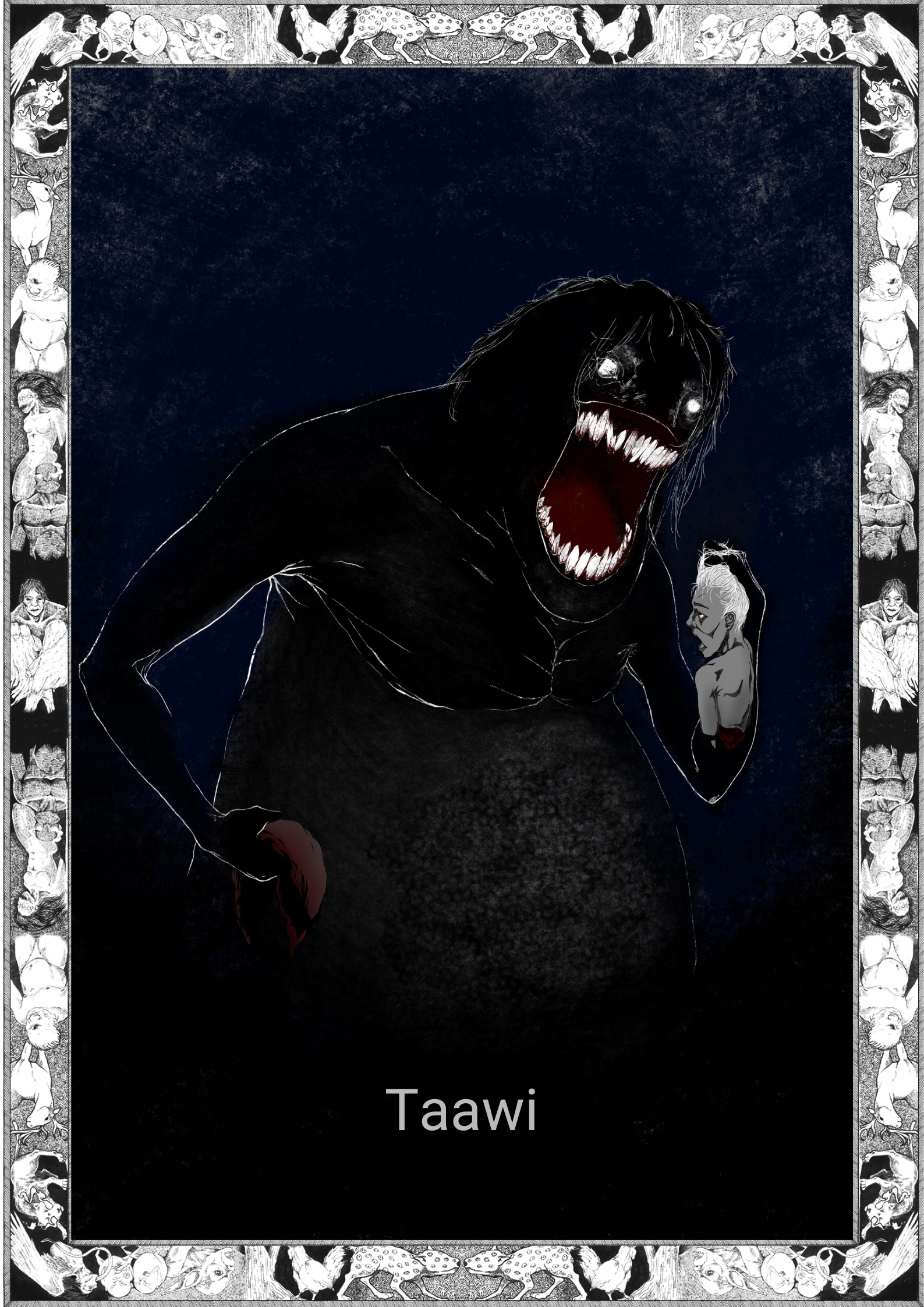
*Note this story is in Ibanag
Ta gafu na, naggian yuri dakal a dios a si Gamhanan, i makapangwa ta ngamin a dios, i manolay, manaron anna manangngal ta ngamin a totolay. Kavulun na danuri karuan nga dios ira na pappatulan na, nga maggian ta vukik na Daeogdog. Ta paggian na turi, pinanolay na, anna pinagarulian na i totolay, nu nakaliwa ira.
Ta korianan na, iparattal nuri Gamhanan i uran, anna tattang na bilak turi ta totolay nga ari tu makimoray sa. Danuri totolay nga ari tu nangitabba o nangitunnak ta atang ta gib o silong nga paggianan na, ay makasissim ta rakay na panagaruli na.
Ta gafu na, naggian gapa yuri panigotlo, i ayam nga tattangngalan ni Gamhanan. Makwa nuri ayam nga mappalaju kagitta na silagab o kil-kila nu makkaso ta bannag. Ta nepallo a kemmemmi na nga innan, ay awat-tu ta makakwa nga tagannan yuri ayam. Ari tu megafu laman yaw ta assing na totolay ta pangibalo ni Gamhanan, nu ari gapa ta pakawayya nuri ayam nga mallavvun nu dumattal i malas o suerte gafu ta pagumme na.
Ta korianan na, yuri urian nga pagumme nuri panigotlo ay maginna ta nage na pattanganayun o pagenteru na vulan, gafu ta yayya i mangisenyas ta pange na mapippia nga paggatab anna suerte. Megafu taw, magayaya danuri totolay ta ili. Kunnud, mapparan ira ta pappabalo ra turi ta dakal a dios tuange ta ayam na nga tangngalan na.
Ta gafu na, egga i pagayaya anna nawak. Awat-tu ikassing nuri panigotlo ta totolay ira nga maggian ta levu na vukik na Daegdog, megafu ta daya-rayawad-da yayya ta pakapangwa na nga mallavvun nu dumattal i suerte onu malas.
Ta korianan na, yuri marattan anna makemmemmi tu innan nga ayam ay napatay na tadday nga mennunung nga minangnganu. Yuri duddu na nga furaw ay maffuga-fugab nga nabbalin tu uzzin megafu ta daga na. Maffuga-fugab ngana yayya nga ari tu magumme tapenu mangisenyas ta dattal na guray anna kapianan onu alum, vurung anna appennanama.
Ta gafu na, naggian yuri dakal a dios anna yuri ayam na.
Ta korianan na, napaggang yuri totolay megafu turi ta
kiningwa ra.
English Version
In the beginning, there was the great god Gamhanan, the most powerful of all the gods, the giver of life, security and livelihood. He dwelt with the other gods of his land in Mount Daeogdog, giving life and punishing errant mortals.
In the end, the god Gamhanan would send the rain and drought to those mortals who would defy his will. Those that would not give the proper offerings to his cave dwelling would know the bitter taste of the god’s punishment.
In the beginning, there was the panigotlo, Gamhanan’s favored pet. It dashed across the river like a ray of pure light. So beautiful was this animal that none would dare harm it, not only for fear of Gamhanan’s retribution but also because it could foretell omens with its bleating.
In the end, the panigotlo would have its last bleating before the full moon, being the harbinger of good harvest and fortune. The people of the village would rejoice and prepare for their thanksgiving to the great god and his pet.
In the beginning, there was joy and light. The panigotlo did not have anything to fear from the mortals surrounding Mount Daegdog, for it was favored, and it would foretell favor or misfortune.
In the end, the majestic beast was killed by a lowly hunter named Dagasanan. Its white fur forever stained by blood. Never again would its bleats tell of abundance and purpose, never again would it warn of flood and despair.
In the beginning, there was the great god and his pet.
In the end, the mortals paid their price.
————————–————————–————————–
*The Ibanag language (also Ybanag or Ibanak) is spoken by up to 500,000 speakers, most particularly by the Ibanag people, in the Philippines, in the northeastern provinces of Isabela and Cagayan, especially in Tuguegarao, Solana, Abulug, Cabagan, and Ilagan and with overseas immigrants in countries located in the Middle East, United Kingdom and the United States. Most of the speakers can also speak Ilocano, the lingua franca of northern Luzon island. The name Ibanag comes from the prefix “I” which means “people of”, and “bannag”, meaning river. It is closely related to Gaddang, Itawis, Agta, Atta, Yogad, Isneg, and Malaweg.
Written by Karl Gaverza
Translation by Jake Calubāquib Coballes
Copyright © Karl Gaverza
Translation Copyright © Jake Calubāquib Coballes
Inspired by the Panigotlo description in ‘A Legend of Aklan’ in Philippine Folk Literature: The Legends. Eugenio. 2002.
Panigotlo Illustration by Julius Advincula
IG: https://www.instagram.com/subhelic

